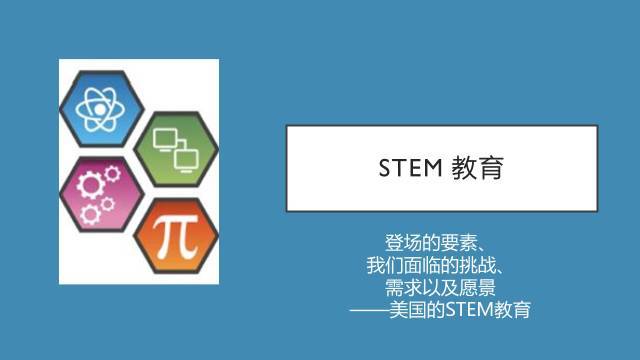Title: Exploring the Significance and Trends in STEM Education Research
STEM (Science, Technology, Engineering, and Mathematics) education research is a dynamic field driving innovation and progress across various sectors. In this article, we delve into the significance and current trends in STEM education research, offering insights and guidance for educators, policymakers, and researchers alike.
Significance of STEM Education Research:

STEM education research plays a pivotal role in shaping educational practices and policies to meet the demands of a rapidly evolving technological landscape. Here are some key aspects highlighting its significance:
1.
Workforce Development:
STEM fields are central to innovation and economic growth. Research in STEM education ensures the preparation of a skilled workforce equipped to tackle emerging challenges and drive progress in diverse industries.
2.
Equity and Inclusion:
By examining factors influencing participation and achievement in STEM among underrepresented groups, research contributes to fostering equity and diversity in STEM fields, ensuring opportunities are accessible to all.
3.
Pedagogical Innovation:
Research informs the development of effective teaching strategies and curriculum designs tailored to enhance STEM learning outcomes, fostering critical thinking, problemsolving, and creativity among students.
4.
Global Competitiveness:
In an increasingly interconnected world, nations strive for excellence in STEM education to maintain competitiveness and address complex global issues such as climate change, healthcare, and sustainable development.
Current Trends in STEM Education Research:
1.
Interdisciplinary Approaches:
Recognizing the interconnectedness of STEM disciplines, research emphasizes interdisciplinary approaches that integrate concepts across science, technology, engineering, and mathematics, fostering holistic understanding and innovation.
2.
Digital Learning:
With the proliferation of digital technologies, research explores the efficacy of online platforms, virtual simulations, and immersive experiences in enhancing STEM learning, catering to diverse learning styles and preferences.
3.
ProjectBased Learning (PBL):
PBL emerges as a prominent pedagogical approach in STEM education research, emphasizing handson, inquirydriven experiences that promote collaboration, problemsolving, and realworld application of knowledge.
4.
Inclusive Practices:
Addressing disparities in STEM participation, research focuses on inclusive practices that promote diversity, equity, and accessibility, including culturally responsive teaching, mentorship programs, and outreach initiatives.
5.
Assessment and Evaluation:
Efforts are directed towards developing valid and reliable assessment tools to measure STEM competencies effectively, moving beyond traditional standardized tests to capture complex skills such as computational thinking and scientific inquiry.
Guiding Principles for Advancing STEM Education Research:
1.
Collaboration:
Foster interdisciplinary collaborations among researchers, educators, industry partners, and policymakers to leverage diverse expertise and resources towards addressing complex challenges in STEM education.
2.
EvidenceBased Practices:
Emphasize the importance of evidencebased practices grounded in rigorous research methodologies, including longitudinal studies, randomized controlled trials, and mixedmethods approaches, to inform educational policy and practice.
3.
Diversity and Inclusion:
Prioritize diversity and inclusion in STEM education research, ensuring representation of diverse populations and perspectives to address equity gaps and foster inclusive learning environments.
4.
Teacher Professional Development:
Invest in teacher professional development programs that equip educators with the knowledge, skills, and resources to implement innovative STEM pedagogies effectively, supporting lifelong learning and growth.
5.
Community Engagement:
Engage stakeholders at the local, national, and global levels through community partnerships, outreach programs, and public forums to promote awareness, advocacy, and support for STEM education research initiatives.
Conclusion:
STEM education research serves as a catalyst for innovation, equity, and excellence in education, driving societal progress and prosperity. By embracing interdisciplinary collaboration, evidencebased practices, and inclusive approaches, stakeholders can collectively advance the frontiers of STEM education, empowering learners to thrive in a rapidly changing world.
This comprehensive exploration underscores the transformative potential of STEM education research and underscores the importance of continued investment and collaboration to realize its full impact on society.
References:
[Add references here]


